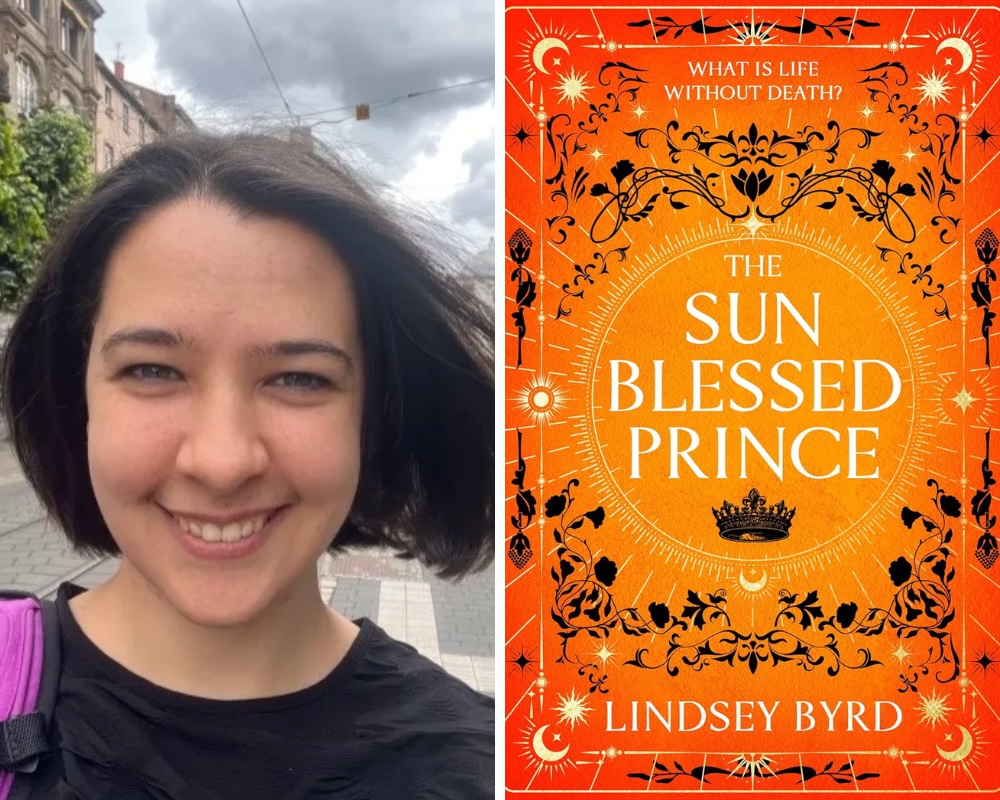Lindsey Byrd on pulling the world of science and medicine into the world of magic

When I first applied for university, I went to Alfred State College, a SUNY school in upstate New York just over the Pennsylvania boarder. I was a nursing student, and had joined because I had been inspired by some volunteer work I had done as a junior firefighter on the EMS team. I wanted to help people and I felt like I could do well as a nurse.
Book wise and education wise: I did do well. I could memorize the information (there was a lot of it), and I could even put them into practice in the teaching hospital we worked at. But I struggled with the harsh demands of the life of a nurse. The constant need to fill in paperwork, the endless deadlines and quotas, and the rush from one patient to the next. I never felt like I had time to really sit with one patient and assess their needs and make sure they were doing well. I was terrified that I would end up not being able to give the patients the care they needed, and by the end of my first semester: I dropped out of nursing school and transitioned to the humanities instead.
When I wrote the first drafts of The Sun Blessed Prince, I was completing my master’s thesis. I wrote the sequel while I was collecting data for my doctoral dissertation. Both drafts, though, were also written during a pandemic.
Naturally, health, medicine and science were at the forefront of my mind.
I have nothing but respect for nurses, doctors, and emergency responders. Anyone who is involved in any form of health care is tasked with a profession that takes a toll mentally, physically, and spiritually. I didn’t have it in me to become a nurse, but as a historian of medicine – I’ve tracked and traced how medical care has evolved over centuries and how medical issues affect not only a civilian populace but also politics, cultures and religions.
Our bodies and how we maintain them is a fascinating part of existence. And it turns out, they make for intriguing stories as well.
The magic system in the The Sun Blessed Prince revolves around life and death. Givers can heal anything they touch and raise the dead; and in turn, Reapers can kill, destroy or decay anything they touch.
When designing this magic system though, I did so with culture and politics in mind. How would people truly react to such abilities? How would those in power seek to control those abilities?
It would be so easy to overwork the Giver population. We overwork our doctors and nurses all the time, and there’s certainly fewer medical professionals then there are patients in need of care. Furthermore, Reapers are simply dangerous – to have someone capable of murder just by existing is a terrifying premise. But it also simplifies a very present reality: anyone is capable of murdering just by existing. It’s simply a matter of how much effort they put into it. Regulation on weapons can make such things harder, certainly – but if we consider Reapers weapons by existence alone, what regulations would need to be applied to them?
In a world where you have a certain number of people capable of healing anything – what would medical care even look like? Would science evolve? Would technology? What would be the point in developing certain tools or medical practices if the ailment can be resolved with a mere brush of the hand?
In building the culture and the world of The Sun Blessed Prince, all my training as someone who has spent a good deal of time adjacent to the medical field came in handy. I knew full well how certain technologies had been developed, but also the culture that is needed in order to support that science, and the motivations of those involved.
It helped inform how the design of Alelune, a country that forbids the use of Giver healing entirely, compared to Soleb, a country that actively uses Givers to manage all ailments. How science in Alelune flourished as a result of continual experimentation, where Soleb either borrowed inventions from their neighbors or relied on magic instead. It also helped set up the understanding and the inquisitive minds of our characters (Cat and Fenlia specifically) as they tried to work out exactly how the science and magic worked in tandem.
Something I loved about writing this book was being able to pull the world of science into the world of magic and helping them to flourish and intersect. If I hadn’t been a historian of medicine with a very minimal medical background, I probably wouldn’t have been able to write this book the way that I did. As it is, I’m very proud of the world that I developed, and I hope you’ll enjoy diving into it and exploring the ways health, medicine, and science all came into being in the very special setting of The Sun Blessed Prince.
The Sun Blessed Prince is published by Tor on 1 May 2025


